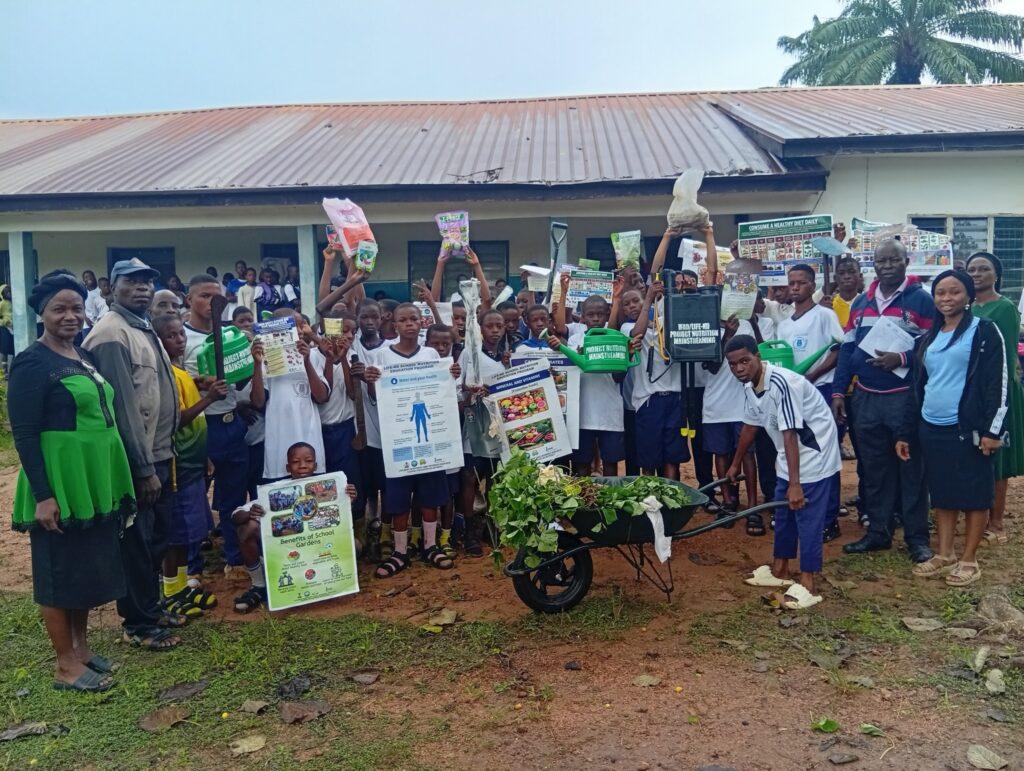Delta State on Tuesday announced the launch of the school farming programme in primary schools throughout the state, aimed at engaging youth, enhancing nutrition, and promoting food security.
Already, the state’s Ministry of Basic Education has begun implementing the programme, distributing seedlings and planting materials to schools in Asaba, Ozoro, and Patani.
The initiative, organized by the Committee on Food and Nutrition, has the theme: “School farming as a tool for sustainable nutrition for learners.”
A director in the Ministry of Basic Education, Mr. Daniel Akiri, represented by Mr. Michael Emeshili, emphasised the relevance of the theme.
Akiri noted that nutrition is a critical factor in development and highlighted the advantages of incorporating farming into school activities to promote food security and self-sufficiency among students.
He praised the State Committee on Food and Nutrition for their efforts and urged teachers and students to take the programme seriously.
“Children, particularly school-aged ones, tend to internalise what they learn and observe. By engaging in plant cultivation, they adopt the culture of farming, which they will carry forward,” he stated.
“This collaborative initiative to enhance school farming will help address food and nutrition insecurity in the state, thereby fostering better nutrition.”
During practical sessions, agricultural experts Mr. Emeke Ochelli and Dr. Arthur Bidor demonstrated effective planting techniques to achieve optimal results.
They emphasised the significance of school farming in cultivating a generation that appreciates agriculture.
“School farming is more than just growing crops; it serves as a platform for teaching responsibility, sustainability, and self-sufficiency.
Read also:
- Delta State Government partners with private sector to tackle housing crisis
- Oborevwori champions clean energy at Macao IIICF, eyes waste-to-energy projects for Delta State
- Delta State to launch quarterly impact assessment of government policies under revamped servicom initiative
When students learn to cultivate food, they acquire life skills that contribute to national development and personal well-being,” they explained.
Mrs. Rachael Ojie, Chief Inspector of Education, expressed gratitude to the organizers and encouraged both public and private schools to embrace agricultural practices.
She stated that school farming equips the next generation with vital life skills necessary for food production and nutrition.
“It will provide students with access to sufficient, safe, and nutritious food that meets their dietary requirements,” she added.
Seedlings of tomatoes, peppers, and oil palm were distributed to students from the participating schools in Asaba, Ozoro, and Patani.
